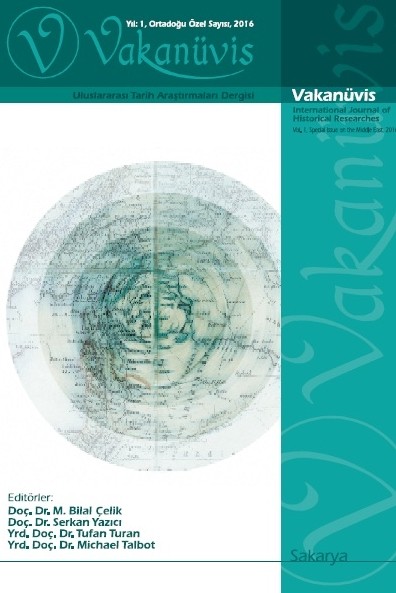Temettuat Defterlerine Göre Karadere Divanı
Sınırlarının
değişmesiyle birlikte Osmanlı Devleti’nin vergi toplama şeklinde ve oranlarında
da değişiklik olmuştur. Özellikle, bozulan merkezi otorite ve yapılan
savaşlarda alınan yenilgiler, hazinenin zayıflamasına neden olmuştu. Giriştiği
ıslahat hareketlerinden istediği sonucu alamayan Osmanlı Devleti, kötü gidişi
düzeltmek amacıyla zamanla bazı düzenlemeler yapmıştı. Bu düzenlemelerin en
önemlilerinden biri de halktan alınacak vergilerdi. Toplanacak vergilerle
hazineye girecek nakit para, devlet adamlarına iktisadi alanda planlı hareket
etme fırsatı verecekti.
1844-1845
yıllarını kapsayan dönemde, devletin hâkim olduğu coğrafyada, halkın sahip
olduğu arazi, emlâk, hayvan, eşya ve mal varlığının tespit edilerek vergilerin
daha adil toplanması için “Temettuat
Defteri” adında yeni bir kayıt çalışması başlatıldı. Temettuat Defterleri tutulduğu
dönemin ekonomik ve sosyal durumunu gözler önüne sermesi bakımından özelikle
tarih ve diğer bilim dallarına ışık tutmaktadır. Temettuat Defterlerinde,
hanelerin bir senede elde ettiği gelir ve sahip olduğu mal varlığı hane reisi
adına kayıt altına alınarak vergilendiriliyordu. Bu sayede defterde adı geçen
kişilerin sahip oldukları meslek, işledikleri toprak miktarı ve nev’i, elde
edilen ürün miktarı ve hayvan sayıları merkeze kadar ulaştırılmış oluyordu.
Çalışmamıza
konu olan, günümüzde Sakarya ili, Adapazarı ilçesinin 20 km kuzeyinde bulunan
Karadere Mahallesi’nin 1844 (Hicri 1260-1261) senesine ait Temettuat Defteri,
Başbakanlık Osmanlı Arşivinde BOA, ML. VRD. TMT. 4183 sayısı ile kayıtlıdır. O
dönemde Karadere Divanı 67 hanenin
bulunduğu, kazanın diğer divanlarına göre oldukça büyük yerleşim birimi
konumundaydı. Kandıra- Adapazarı yolu üzerinde olan Karadere Divanı, Kaymas
kazasının en kalabalık Müslüman yerleşim birimiydi.
Anahtar Kelimeler:
Sakarya ili, Kaymas, Temettuat Defteri, Karadere Divanı
Dividend Book of Karadere
The Ottoman
State's tax collection methods and also rates changed with the change of
boundaries. Especially deteriorating central authority and received successive
defeats in the wars led to weakening of the public purse. The Ottoman State
which did not obtain the desired result of reform movements made some
arrangements in order to correct bad going over time. One of the most important
of these arrangements was the taxes to be taken from the people. The cash money
to be collected with taxes for treasure would give the opportunity to move in a
planned manner to the statesmen in the economic area.
During the
period from 1844 to 1845, a new registration work called " Dividend Book " was initiated in order to collect tax
more equitably by determining the existence of land, real estate, animals,
goods and goods possessed by the people in the geography where the state is
dominant. Dividend Books shed light especially on the history and other
disciplines in point of showing up the economic and social situation of that
period. In Dividend Books the income that dwellings had in a year and the
property that they had, were recorded then taxed in the name of the
householder. In this way, the profession of the people mentioned in the book,
the amount and kind of land they work, the amount of product obtained and the
number of animals were delivered to the center.
The
Dividend book, the subject of our research, belongs the year of 1844 (A.H
1260-1261) of Karadere Quarter that located on 20 km north of today's Adapazarı
district, Sakarya province, is registered in The Ottoman Archives of the Prime
Minister’s Office with the number BOA, ML. VRD. TMT, 4183. At that time, this
settlement called the Karadere Divanı
was pretty croweded dwelling unit with 67 households when compared to the other
Divans of the district. Karadere Divan, which was on the way to
Kandıra-Adapazarı, was the most crowded Muslim settlement of Kaymas borough.
Keywords:
Sakarya province, Kaymas, Dividend Book, Karadere Divanı,
___
- Turgut Subaşı, Melih Barçın, Temettuat Defterlerine Göre Karadere Divanı, Vakanüvis Uluslararası Tarih Araştırmaları Dergisi, c. 2, s. 1, Sakarya, Mart 2017, ss. 199-217.
- ISSN: 2149-9535
- Başlangıç: 2016
- Yayıncı: Serkan YAZICI
Sayıdaki Diğer Makaleler
Osmanlı Vakanüvislik Geleneğinde Türk Dilinin Evrimi
Temettuat Defterlerine Göre Karadere Divanı
Kitap Tanıtımı: Fuat Uçar, Türk Siyasi Hayatında Milliyetçi Cephe Hükümetleri
Gazneliler ile Selçuklular Döneminde Taberistan Bölgesi ve Ziyâriler
II. Abdülhamid Döneminde Dâülkelp (Köpek Hastalığı-Kuduz) Tedavihanesi
Kitap Tanıtımı: Figen Atabey, Çanakkale Muharebelerinin Deniz Cephesi
